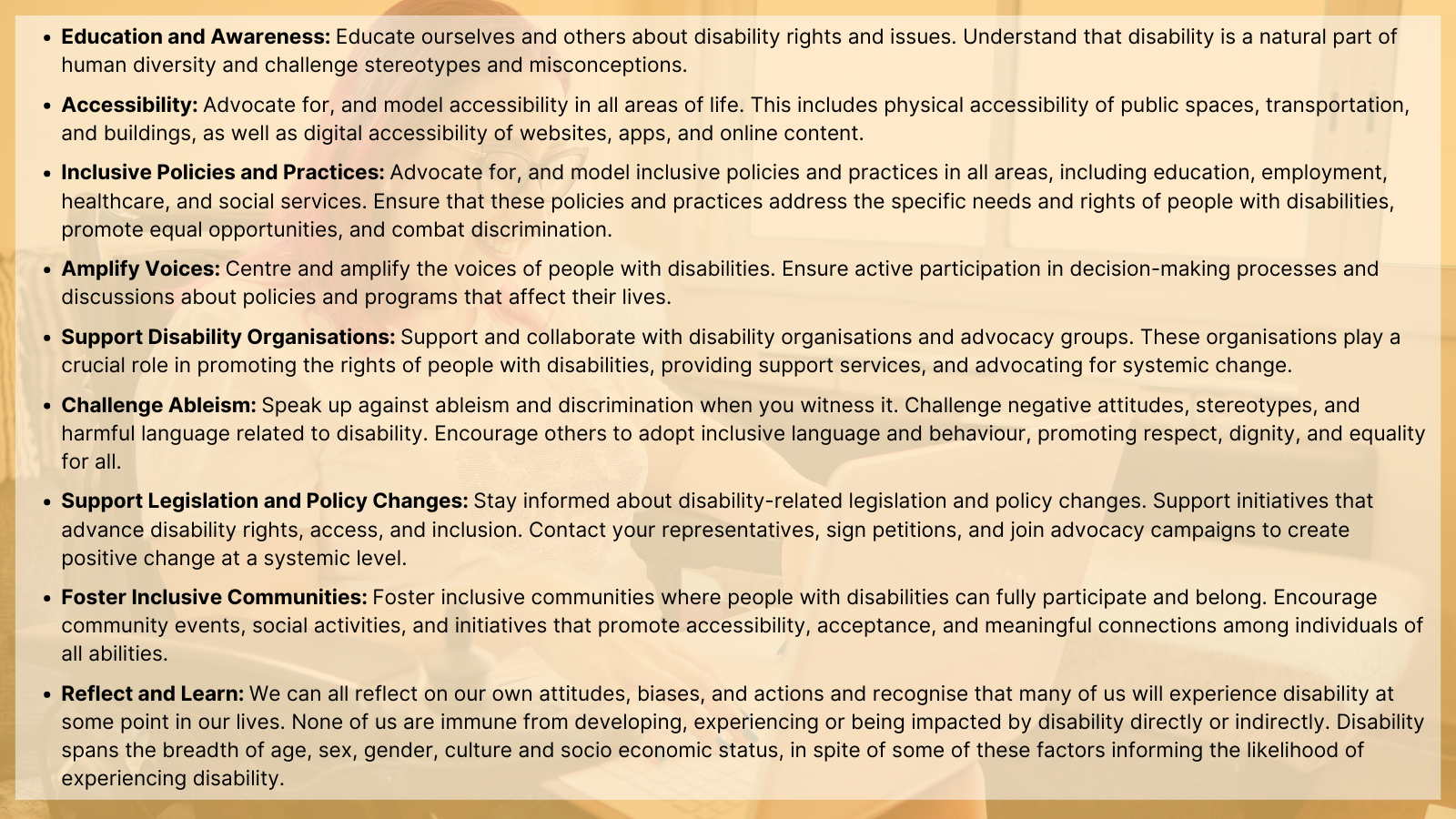July is Disability Pride Month, a time to both celebrate human diversity and to think more deeply about disability, how society engages people who live with disabilities and what we can collectively do to better support this diverse but unified community.
The human rights model of disability recognises that:
- Disability is a natural part of human diversity that must be respected and supported in all its forms.
- People with disability have the same rights as everyone else in society.
- Impairment must not be used as an excuse to deny or restrict people’s rights.
The model exists because of an important international document, The United Nations Convention on the Rights of Persons with Disabilities, which was developed by people with disability, with the aim of achieving a greater level of equality for people with disability around the world.
The Australian Government signed the Convention on the Rights of Persons with Disabilities in 2008, making a legal commitment to uphold the principles the convention establishes. These include:
- Respect for inherent dignity, individual autonomy including the freedom to make one’s own choices, and independence of persons.
- Non-discrimination.
- Full and effective participation and inclusion in society.
- Respect for difference and acceptance of persons with disabilities as part of human diversity and humanity.
- Equality of opportunity.
- Accessibility.
- Equality between genders.
- Respect for the evolving capacities of children with disabilities and respect for the right of children with disabilities to preserve their identities.
We can better support our disability community by considering accessibility when conducting our everyday activities at work, home and in community and social settings – not as an afterthought or addendum, but as an embedded thought process which happens organically during planning and organisation.
Here are some practical steps we can take to support the disability community using a human rights lens:

By integrating a human rights lens into our support for the disability community, we can work towards a more inclusive and equitable society where the rights and dignity of all individuals are respected and upheld.
It is important to not just celebrate Disability Pride Month in July but throughout the year, as we strive to create a world that embraces and supports the diverse abilities of every person.
